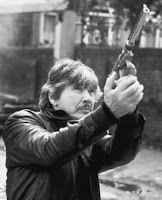In the mean time, here is some good criticism by better critics. R.T.’s autobiographical exploration of Wise Blood, a book that he described here as having changed his life, has grown to six parts. Each one is
 worth reading. Indeed, R.T.’s series is so good that Nige was provoked to start reading O’Connor.
worth reading. Indeed, R.T.’s series is so good that Nige was provoked to start reading O’Connor.The Mookse and the Gripes calls for a wider appreciation of the Northern Irish novelist David Parks’s Swallowing the Sun.
Genevieve Tucker recommends an Australian story writer who will be unfamiliar to most Americans—Tom Cho, the historian of patchy employment.
Daniel Green concludes that Paul Griffiths’s short novel Let Me Tell You, an account of Ophelia’s life before Hamlet, “has very little claim on our attention” apart from its Shakespearean source.
Philip Lopate’s Notes on Sontag is the first entry in the Princeton University Press series Writers on Writing, and Ron Slate dissects it carefully, saying that his “persistent if respectful antagonism” affords Lopate the “entertaining and profitable opportunity” to consider Sontag’s postmodernist agenda.
At the University of Rochester’s Three Percent, Emily Shannon warns that the Turkish novelist Ahmet Hamdi Tanpinar’s Mind at Peace puts in question what you believe about humanism.
Jake Seliger gives a thumb down to George Johnson’s Architects of Fear: Conspiracy Theories and Paranoia in American Politics. The analysis is flat or inadequate, and the research is thin. Thus Seliger’s conclusion.
Georges Simenon’s Rules of the Game is the latest book to be rescued from neglect by Brad Bigelow’s irreplaceable Neglected Books Page: “it has something of the attractive bitterness of a glass of Campari,” Bigelow concludes.
Rebecca O’Neal, back from a sixteen-day absence, promises good things to come about Revolutionary Road and Wilfrid Sheed’s Max Jamison, one of the few interesting novels about a critic.
Best of all, of course, is Patrick Kurp, whose delightful account of the Field Guide to the Sedges of the Pacific Northwest published last year by Oregon State University Press is a reminder that criticism can (and should) be written as well as fiction.
0 comments:
Post a Comment